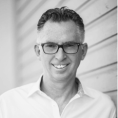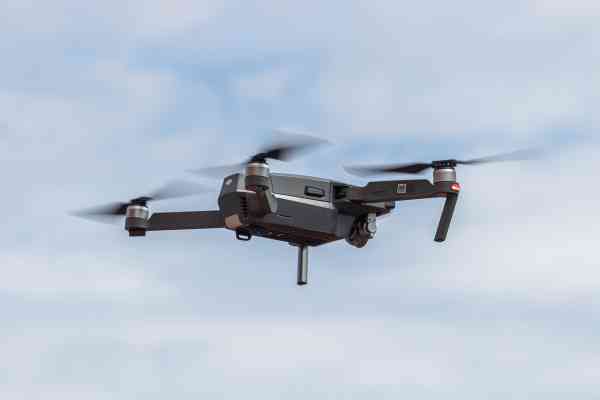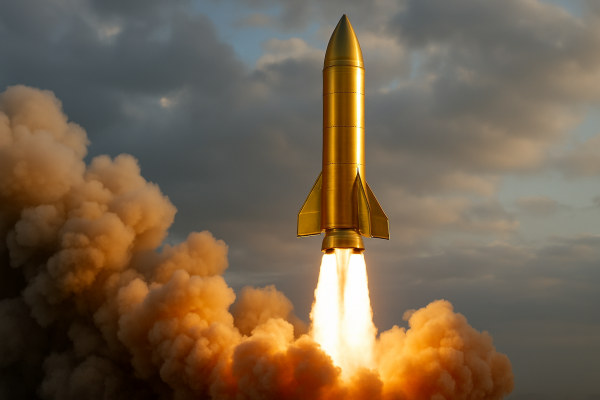February 27th, 2023 | 14:56 CET
A 100% rocket launched - Who builds the best battery? Tesla, First Phosphate, BASF and Varta
The Tesla investor day is getting closer. On March 01, the eccentric visionary Elon Musk will again address his disciples, this time from the new Gigafactory in Austin/Texas. Analysts went into the presentation of the annual figures with cautious expectations because many negative rumors were surrounding Elon Musk's electronics company: Fewer sales? Cars on stockpile? It came as no one had expected. Elon Musk delivered and, at the same time, taunted all the shorties who wanted to push his stock below USD 100 before the end of the year. It was a big mistake because the Texans even exceeded the analysts' estimates, and then there was no stopping them. Up 100% in only 6 weeks, and Cathie Wood can celebrate success with her ARK funds again. But Tesla is not alone among the 100% movers.
time to read: 5 minutes
|
Author:
André Will-Laudien
ISIN:
TESLA INC. DL -_001 | US88160R1014 , FIRST PHOSPHATE CORP | CA33611D1033 , BASF SE NA O.N. | DE000BASF111 , VARTA AG O.N. | DE000A0TGJ55
Table of contents:

"[...] Boron is one of the most versatile elements in the whole world! Everyone reading this text regularly uses hundreds of products that depend on boron. [...]" Tim Daniels, CEO, Erin Ventures
Author
André Will-Laudien
Born in Munich, he first studied economics and graduated in business administration at the Ludwig-Maximilians-University in 1995. As he was involved with the stock market at a very early stage, he now has more than 30 years of experience in the capital markets.
Tag cloud
Shares cloud
Tesla - Can Elon Musk convince his disciples again?
Highflyer Tesla delivered unexpectedly good figures at the beginning of February. Thus, founder Elon Musk's company increased its profit by 12% year-on-year to USD 12.6 billion, while sales rose by 51% to USD 81.5 billion. Although the announced sales figures of 1.3 million units were just missed, the announcement to deliver 1.8 million units in the current year was surprising. The Tesla share price doubled within 6 weeks and corrected the market capitalization to EUR 600 billion. By comparison, Volkswagen is worth only EUR 74 billion but sells twice as many vehicles and makes 40% more profit.
The comedy play Twitter and Musk's egocentric decisions to realign the group have not left Tesla unscathed. At the upcoming investor day, the "enfant terrible of automotive art" will not get very far with flowery announcements alone because the competition is closing in. The sales of the Chinese company BYD, for example, have long since outstripped Tesla's sales. Therefore, the pressure to innovate is high, which is the only reason for the Texans' exceptional valuation. In Europe, Volkswagen has been setting the tone for e-cars since 2020. While Tesla is trying to catch up here, the US electric carmaker has lost ground both in the Asia-Pacific region and in its home market. In China, the world's largest car market, the US company recently had to cut prices on its best-selling models to compete against rapidly growing local manufacturers.
Musk has announced a "Master Plan Part 3" for Wednesday's investor day. The "Full Self Driving Beta" system he heavily promoted is still classified by experts as a Level 2 driver assistance system and criticized for many technical flaws. So March 1 should be highly exciting and strongly impact the share price development.
First Phosphate - What a stock market debut for the Canadians!
A brand new company from Canada is making a name for itself. First Phosphate from Montreal addresses the growing demand for phosphate in the course of the electric mobility revolution. Experts have calculated that the alternative battery market for e-mobility will grow from about USD 10 billion to USD 50 billion between 2021 and 2028. Currently, around 90% are produced as lithium iron phosphate batteries in China.
Phosphate has been better known as a material for the fertilizer industry to increase agricultural yields, but its relevance to recent battery research is high. Unlike conventional lithium-ion cells with lithium cobalt oxide, the chemical reaction does not release oxygen, which can cause the cell to self-ignite under unfavourable conditions.
First Phosphate stands for a technological renewal of battery technology and aims to initiate the production of active LFP cathode material with its high-purity phosphate project. The project operates in compliance with all ESG standards and with a low carbon footprint. The first work for an economic feasibility study is underway. Just days after the IPO, the Company announced a wide-ranging collaboration agreement with Prayon SA of Belgium. Prayon is a global manufacturer and technology provider in the purified phosphoric acid sector.
Peter Kent, President of First Phosphate, stated, "The LFP battery is already a leading, globally accepted battery chemistry, but domestic production supply in Europe and North America is still limited. With today's announcement, we are laying the groundwork to build production capacity in North America." The stock cheered the announced collaboration with a 100% jump in the share price on Friday. The stock is listed in Canada and Frankfurt and is trading with high turnover. Very exciting!
The presentation by CEO John Passalacqua at the 6th International Investment Forum (IIF) on February 15 provided more information.
Varta - The skepticism is still there
The share of the Ellwangen-based battery and storage manufacturer Varta has now been consolidating since the end of September after several profit warnings. At the end of the year, the value was pushed down to EUR 21.70 after high costs and few rollover opportunities burdened the budget. Then the management board changed, and the guidance was suspended for the time being.
Because V4Drive is only moving forward in small steps, the market is now paying more attention to the second important pillar: the energy storage division, known as Battery Storage Systems. Varta wants to make its batteries more efficient with the help of artificial intelligence (AI) as part of a "Longer" research project. Machine learning and AI are intended to more accurately map the typical operating modes of home storage devices and their effect on the battery than the software currently in use. The goal is to use the available battery capacity optimally while conserving battery power. If successful, this will increase the storage unit's service life, leading to less material being used and thus reducing acquisition costs. The project runs until the end of 2025, and the Fraunhofer Institute for Solar Energy Systems is also involved.
With four earnings revisions, analysts expect an average loss of 9 cents per share for the current year. Nine months ago, a profit of EUR 1.46 was still considered possible. For the scolded investors, one can only hope that the new board and consulting support will help lead the hopeful group back to profitability. Wait and see!
BASF - Poor figures put the Ludwigshafen-based company under pressure
The final BASF figures for 2022 were peppered with some negative information, which sent the value to a diving station of 7% for the time being. The Ludwigshafen-based company's core business did quite well last year. Sales rose by around 11% to EUR 87.3 billion after adjusting for inflation, and EBITDA also remained within expectations at EUR 10.75 billion (-5.3%).
Even after deducting the write-down on the Nord Stream and Russian business at subsidiary Wintershall DEA, the books still showed a profit of EUR 1.2 billion. After taxes, however, BASF posted a loss of EUR -627 million or EUR -0.70 per share. As these are non-cash corrections, the dividend for shareholders is to be maintained at EUR 3.40.
However, the subdued outlook combined with the pronounced weakness in Q4 ended all speculation by the bulls on Friday. That is because the Management Board warned that business will weaken further in the 1st half of the year. Although operating earnings are expected to remain virtually unchanged for the year as a whole, hopes rest solely on a significant recovery in the second half of the year. In the coming days, analysts are likely to hail downgrades. From a chart perspective, the sell-off could continue into the EUR 44.50 to 45.80 zone. Keep watch!
Today we know that e-mobility will not be the sole remedy to avert the climate crisis. Many efforts are needed to reduce energy consumption on this planet and make it cleaner. Tesla and BASF are attractive standard stocks with market leader qualities. Varta must first become sustainably successful again. First Phosphate starts as a newcomer with good ideas and a brilliant opening rally.
Conflict of interest
Pursuant to §85 of the German Securities Trading Act (WpHG), we point out that Apaton Finance GmbH as well as partners, authors or employees of Apaton Finance GmbH (hereinafter referred to as "Relevant Persons") may hold shares or other financial instruments of the aforementioned companies in the future or may bet on rising or falling prices and thus a conflict of interest may arise in the future. The Relevant Persons reserve the right to buy or sell shares or other financial instruments of the Company at any time (hereinafter each a "Transaction"). Transactions may, under certain circumstances, influence the respective price of the shares or other financial instruments of the Company.
In addition, Apaton Finance GmbH is active in the context of the preparation and publication of the reporting in paid contractual relationships.
For this reason, there is a concrete conflict of interest.
The above information on existing conflicts of interest applies to all types and forms of publication used by Apaton Finance GmbH for publications on companies.
Risk notice
Apaton Finance GmbH offers editors, agencies and companies the opportunity to publish commentaries, interviews, summaries, news and the like on news.financial. These contents are exclusively for the information of the readers and do not represent any call to action or recommendations, neither explicitly nor implicitly they are to be understood as an assurance of possible price developments. The contents do not replace individual expert investment advice and do not constitute an offer to sell the discussed share(s) or other financial instruments, nor an invitation to buy or sell such.
The content is expressly not a financial analysis, but a journalistic or advertising text. Readers or users who make investment decisions or carry out transactions on the basis of the information provided here do so entirely at their own risk. No contractual relationship is established between Apaton Finance GmbH and its readers or the users of its offers, as our information only refers to the company and not to the investment decision of the reader or user.
The acquisition of financial instruments involves high risks, which can lead to the total loss of the invested capital. The information published by Apaton Finance GmbH and its authors is based on careful research. Nevertheless, no liability is assumed for financial losses or a content-related guarantee for the topicality, correctness, appropriateness and completeness of the content provided here. Please also note our Terms of use.




